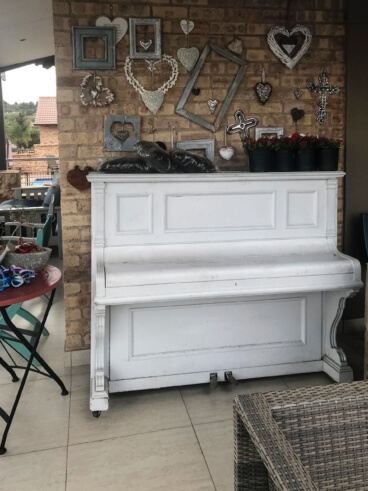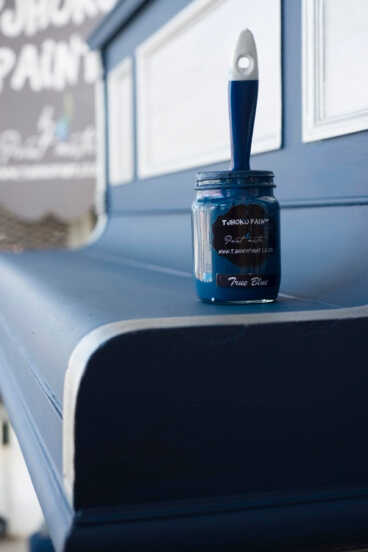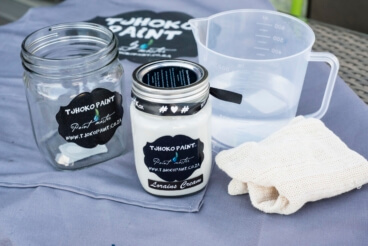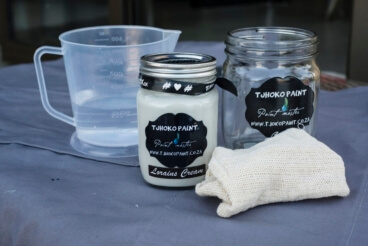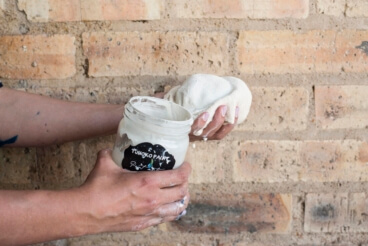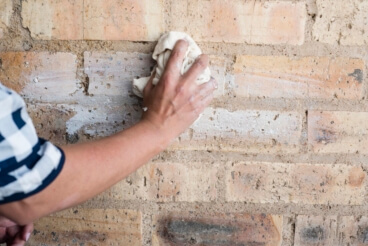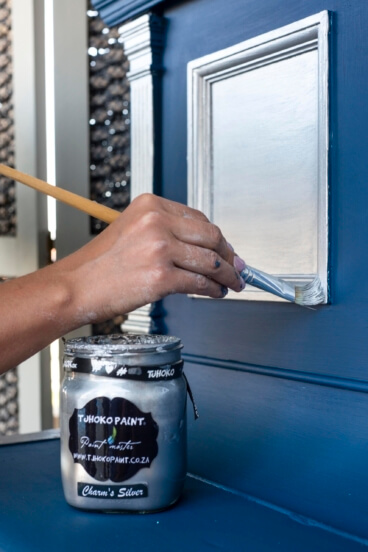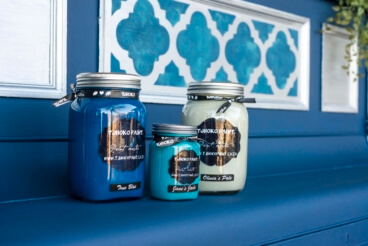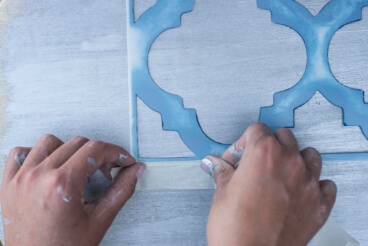Give that old piano a revamp with the following instructions:
Whitewash a wall
Mix equal quantities of Tjhoko Paint with water; we used Lorain’s Cream. If you’re after a more
solid whitewash effect, add more paint and less water. If the wall needs a wash, use a mixture of
sugar soap and water and allow it to dry before applying the whitewash technique. Dip a damp cloth
in the paint mixture and apply it to the wall.
Mix equal quantities of Tjhoko Paint with water; we used Lorain’s Cream. If you’re after a more
solid whitewash effect, add more paint and less water. If the wall needs a wash, use a mixture of
sugar soap and water and allow it to dry before applying the whitewash technique. Dip a damp cloth
in the paint mixture and apply it to the wall.
TIPS:
• The mixture can be applied to face-brick surfaces and raw timber. Test the mixture in an inconspicuous spot.
• If you’re applying this technique on a surface that gets direct sunlight, prepare the mixture as follows: 250ml Tjhoko Paint in the colour of your choice, 120ml Clear Glaze and 20ml water (this will cover about 8m2). The glaze will add a satin UV- and water-resistant finish.
• The mixture can be applied to face-brick surfaces and raw timber. Test the mixture in an inconspicuous spot.
• If you’re applying this technique on a surface that gets direct sunlight, prepare the mixture as follows: 250ml Tjhoko Paint in the colour of your choice, 120ml Clear Glaze and 20ml water (this will cover about 8m2). The glaze will add a satin UV- and water-resistant finish.
Add a bit of bling:
Ensure that the surface you want to paint is clean by wiping it down with thinners. Paint the blue
sections (choose any colour you like) with a good quality 50mm paintbrush; wait about 20 minutes
before applying a second coat. You don’t need to apply a wax; Tjhoko Paint is already sealed. Now paint the Charm’s Silver; shake well before you apply it as the metallic pigments are heavy and will sink to the bottom of the pot. A good quality 38mm paintbrush fits neatly into the 250ml paint pot.
Ensure that the surface you want to paint is clean by wiping it down with thinners. Paint the blue
sections (choose any colour you like) with a good quality 50mm paintbrush; wait about 20 minutes
before applying a second coat. You don’t need to apply a wax; Tjhoko Paint is already sealed. Now paint the Charm’s Silver; shake well before you apply it as the metallic pigments are heavy and will sink to the bottom of the pot. A good quality 38mm paintbrush fits neatly into the 250ml paint pot.
A stencil effect:
Add an exotic touch to any surface with a Moroccan-style stencil; we applied ours on a recessed area on the piano painted in the Charm’s Silver. Using a stencil brush, combine the colours Jane’s Jade, True Blue and Olivia’s Pale and blend until you’re happy with the tone.
Add an exotic touch to any surface with a Moroccan-style stencil; we applied ours on a recessed area on the piano painted in the Charm’s Silver. Using a stencil brush, combine the colours Jane’s Jade, True Blue and Olivia’s Pale and blend until you’re happy with the tone.
TIPS:
• Work with very little paint on the stencil brush to prevent it from bleeding underneath the stencil.
• Move the stencil brush in circles; it’s quicker and leaves a more even finish than dabbing the paint on.
• Work with very little paint on the stencil brush to prevent it from bleeding underneath the stencil.
• Move the stencil brush in circles; it’s quicker and leaves a more even finish than dabbing the paint on.


